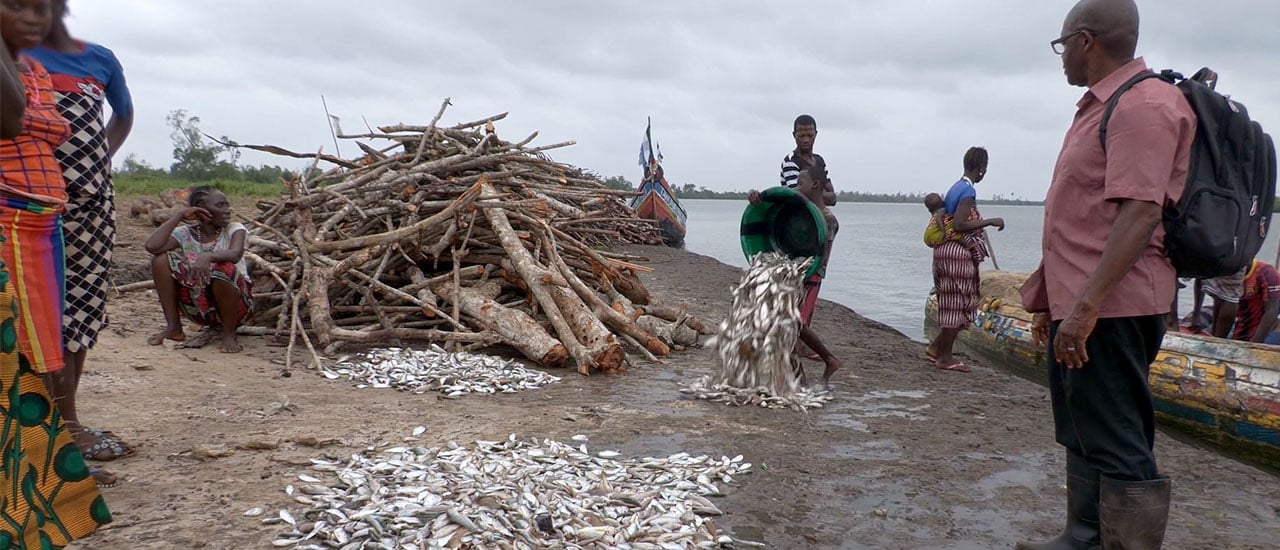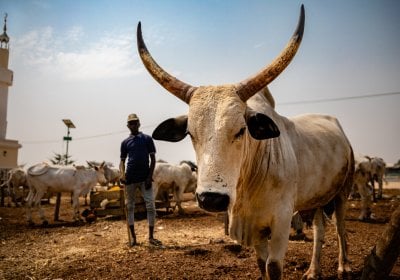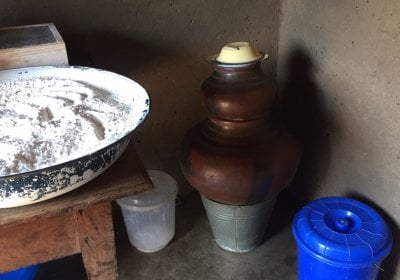Meet our LSHTM anthropologists, producing research meaningful for health.
Learn about what makes LSHTM anthropology distinctive and how you can study with us.
Anthropologists are based across all LSHTM faculties. We work at the intersection of disciplines and methodological approaches to produce research that is meaningful for understanding and acting on health.
See this document for a compendium of our profiles.
Select a name to learn more about individual anthropologists’ profiles, research and publications.
Penda Johm
Godfrey Siu
Anthropology at LSHTM is distinct and dynamic. At LSHTM, anthropologists conduct a range of research, collaborate through teaching and provide spaces for connecting and keeping up-to-date with developments in the discipline. LSHTM anthropologists also share a commitment to interdisciplinary working, with multiple opportunities to engage in conversations and research across disciplines, such as medicine, epidemiology, history and economics.
- Research activity
The research activities of anthropologists at LSHTM contribute to improvements in the ways health is understood, practiced and studied. Our research dives in detail into a wide range of topics, and a wide range of settings around the globe. Across these topics and settings, LSHTM anthropologists are attending to people’s experiences of health and illness, inequalities and injustice, the body, the politics of care, biomedical technologies, health professions, non-human relations, infrastructures, climate breakdown, migration and mobility, corruption and crises, among other concerns.
Our research engages with topics including epidemics, substance use, vaccines, one health, end of life, birth, adolescence, multimorbidity, antimicrobial resistance, conflict, mental wellbeing, specific diseases including HIV/TB/malaria/Ebola/COVID-19, health systems and hygiene.
For further information about our research, please see profile pages of anthropologists listed in ‘People.’
Outcomes from our research is published in a range of formats, from discipline-specific journals such as Medical Anthropology Quarterly, Medicine Anthropology Theory, Anthropology & Medicine, Social Science and Medicine and Medical Anthropology, to monographs, development journals such as World Development and public health journals such as the Lancet, Nature, the BMJ Global Health and regional and disease specific journals. We also publish for a more general audience through communications in venues such as the Conversation. Anthropologists at LSHTM work at the interface with policy, including as independent experts, translating research into policy recommendations at national and international levels of health governance. Our outputs extend beyond traditional written formats, for example the film, 'Tarma' presents how frontline responders, from epidemiologists and clinicians to community health workers, civil society activists and traditional healers in Sierra Leone’s Kambia District developed imaginative ways to come together to respond to health emergencies in the aftermath of the 2014-16 Ebola epidemic. The film was made collaboratively with Sepctacle and a community advisory group and was shown at the Sierra Leone Ministry of Health, the Montecatini International Short Film Festival and a number of universities. Similarly, the Taura play was produced with adolescents about adolescent health and wellbeing in Zimbabwe and performed in multiple Theatres.
Our anthropologists present research findings at a range of conferences, including the Society of Medical Anthropology, the American Anthropological Association meetings, the Association of Social Anthropologists, the European Association of Social Anthropologists, the Society for the Social Studies of Science as well as at major health forums such as ASTMH, ESCMID International AIDS Society conferences, and at smaller venues and in regional and national level conferences in Africa, Asia and South America.
- Teaching
Anthropologists at LSHTM teach on MSc programmes and modules across faculties, with strong recognition of the need to include an anthropological perspective amongst others in many subject areas. Students can also choose to take the popular Medical Anthropology and Public Health module, which is offered face-to-face as well as distance learning. Anthropologists supervise multiple MSc dissertation projects each year.
Our anthropologists frequently provide training, and produce training guides, to strengthen capacity in anthropological approaches in health research. For example, a guide to a broad brush survey approach for rapid community assessments, and a guide and protocol examples for formative research for health interventions.
- Supervision
LSHTM is a popular choice for PhD students keen to study medical anthropology in a strong public health research institution. Our students receive funding from a range of sources, including the Economic and Social Research Council, Medical Research Council and a range of charitable funders including the Medical Research Foundation, Reckitt and the Wellcome Trust.
Current student spotlight: An example from Esther Sharma's work:
Visual narrative:
Examples of recently completed theses:
- Maddy Gupta-Wright (2019) Elimination at Work: Towards an Anthropology of Trachoma in Malawi
- Natasha F Brenman (2019) Place, Need and Precarity in UK Mental Health Care: An Ethnography of Access.
- Constance Mackworth-Young (2020) An ethnographic study of the everyday lives of young women living with HIV in Zambia
- Manuel Campinas (2020) Stones, demons, medicinal herbs, and the market: Ethnic medicine and industrial aspirations among the Qiang of Western Sichuan.
- Hannah Cowan (2020) How I fell out of love with the NHS: An ethnography of hip replacements and healthcare assemblages in the UK.
- Gemma J Aellah (2021) Everyday life in a site of transnational medical research in Western Kenya: an ethnographic study
- Laura Caballe-Climent (2021). Birthing Matters: Care and Belonging in Black Rural Bahia, Brazil
- Fred Martineau (2021). Caring for crises: tinkering with precarity in primary health care in Sierra Leone
- Anushé Hassan (2021) Parental care, allomothering and child health in north-western Tanzania: who cares for children and does it matter?
- Susan Nayiga (2022) Antibiotics in Society: a multi-sited ethnography in rural and urban Uganda
- Maayan L Ashkenazi (2022) In Place of Difference: An Ethnography of Emplaced Care and Making the Other in Berlin.
- Yuzana Khine Zaw (2022) An ethnographic study of medicines, care, and antimicrobial resistance amidst disorder and decline in Yangon, Myanmar.
- Space for connection
Anthropologists at LSHTM meet through various fora, including the Anthropological Approaches to Global Health group in the department of Global Health and Development, to share insights, learning and to develop new research. Early career researchers, including postdoctoral fellows and doctoral students, can present their research and hear from anthropologists’ works in a range of events such as masterclasses and the Kritikos Study Group, an informal discussion group for qualitative researchers, and country specific groups such as the Zimbabwe Social Science Research Group. LSHTM anthropologists also invest in capacity sharing, to strengthen learning between anthropological networks in lower, higher and middle income countries. This includes involvement in networks such as the Social Science in Humanitarian Action Platform, Sonar Global and the Royal Anthropological Institute.
Anthropologists at LSHTM run the Medical Anthropology Seminar series, invited talks that explore the social, political, economic and cultural factors that shape health and well being. The series includes guest speakers from other institutions as well as from within LSHTM.






